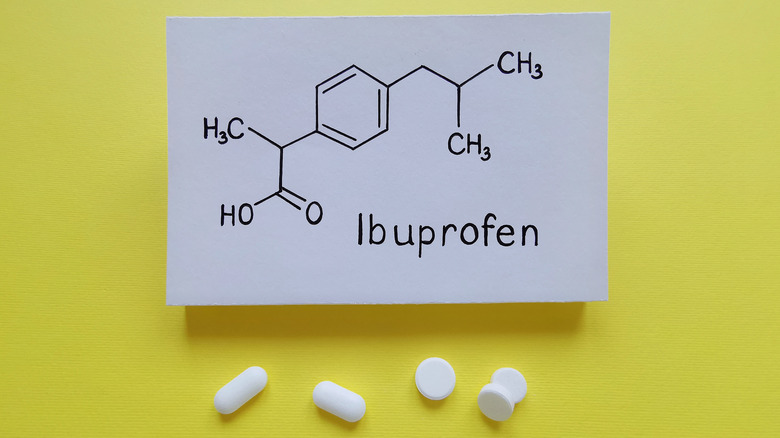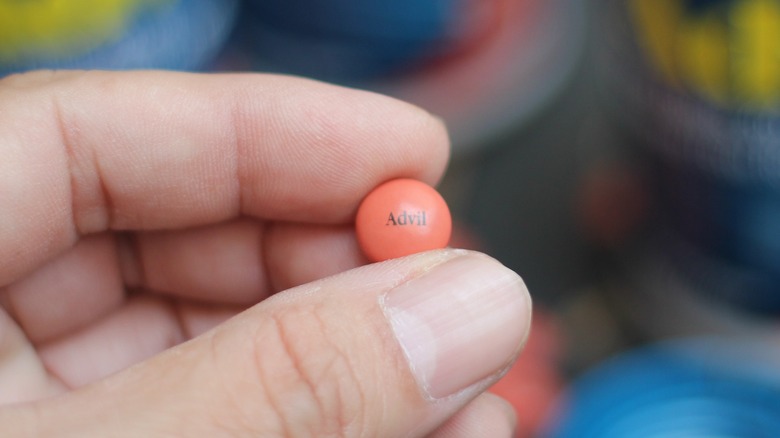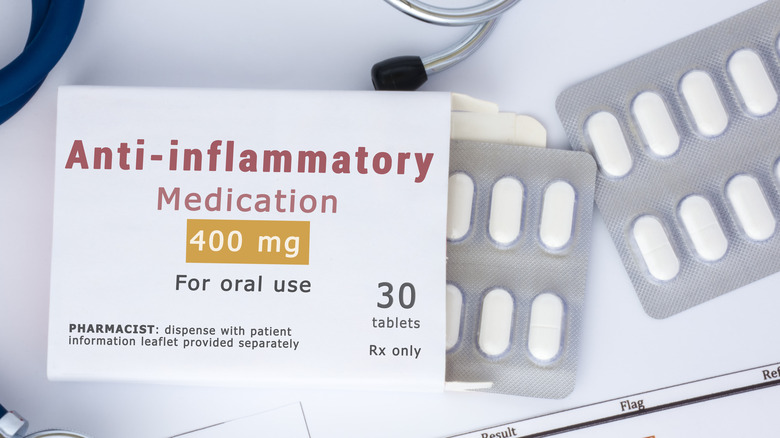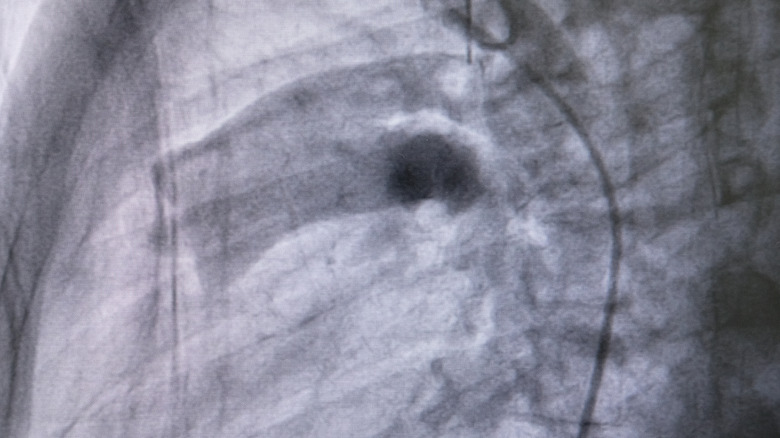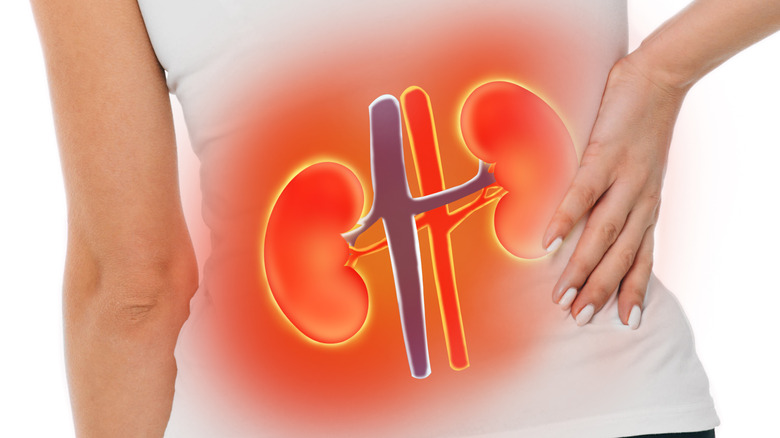Things You Might Not Know About Ibuprofen
Every appropriately stocked household medicine cabinet will have a bottle of ibuprofen located somewhere in its depths. This drug is one of the most common over-the-counter medications commonly taken by Americans. Chances are, you have reached for a dose of Advil or Motrin (both brand names of ibuprofen) to soothe the aches and pains of life.
This essential medication is ubiquitous. Because of this, it is commonly underestimated by the public, written off as a weak analgesic for minor pain. The truth is that ibuprofen has a host of unique properties and uses, making it an essential tool for medical practice. This medication serves an important role in dealing with a variety of illnesses, including arthritic pain, congenital heart defects, Alzheimer's disease, cystic fibrosis. However, like many other types of medicine, dangerous side effects and toxicities can occur if the drug is misused.
This article will describe the pharmacology of ibuprofen, detail how the body metabolizes it, outline interesting uses for the drug, and discuss its fascinating origin story (let's just say it's been treating hangovers since its invention). So buckle up, and get ready to learn all the fun facts about this essential medicine.
It is a non-steroidal anti-inflammatory drug
Ibuprofen belongs to a class of medications called non-steroidal anti-inflammatory drugs (NSAIDs). The Cleveland Clinic notes that this drug class also includes medications like aspirin and naproxen. Notably, however, it doesn't include acetaminophen (also known as Tylenol). Prescription strength NSAIDs are also available; they include medicines like Celebrex, Voltaren, and Toradol.
One of the defining features of these medications is described in the name: "non-steroidal." According to the article, NSAIDs work like steroids or corticosteroids, sans many of their side effects. "Like cortisone, NSAIDs reduce pain and inflammation that often come with joint and muscle diseases and injuries." This makes the medication tremendously valuable in treating inflammation, because while NSAIDs have side effect profiles of their own, they pale in comparison to the system-wide effects steroids can have.
As a class of medications, NSAIDs have several minor (but common) side effects. The Cleveland Clinic describes things like gas, heartburn, nausea and vomiting, noting that "taking the drug with food, milk or antacids" can prevent the symptoms from manifesting.
It was discovered to relieve its inventor's hangover
Those who drink alcohol are sure to have a story or two about the toxic effects alcohol can bring once the party is over and the sun begins to rise. The throbbing temples. Bright lights and sounds that make everything worse. In the throughs of a hangover, many of us reach for a trusty bottle of Advil to bring sweet relief. Turns out, we have ibuprofen's own inventor to thank for this discovery of the medicine's hangover-killing quality.
In an article for Smithsonian Magazine, writer David Kindy recounts the unusual circumstances that led to this discovery. "As [ibuprofen inventor Stewart Adams] woke up that morning in 1971, he realized he needed to do something to relieve his throbbing headache, so he could coherently deliver an important speech at a pharmacological conference in a few hours. He reached for that new drug and swallowed a 600-milligram dose. Voila!" The hangover was quickly cured.
Until that point, ibuprofen had only been used in clinical trials to treat other, more generalized pain. It had never been taken to relieve a headache. And while Stewart Adams had originally set out to find a drug that could cure rheumatoid arthritis, his discovery after a long night of drinking essentially led to the widespread adoption of this relatively safe pain medicine. Thank goodness for that fateful hangover!
It directly blocks the creation of inflammatory chemicals
How, then, does this mighty medication bring about its pain-relieving qualities? The key lies in blocking the creation of chemicals called prostaglandins, according to PubChem. When a dose of ibuprofen is taken, the drug enters the bloodstream and searches for the COX-1 and COX-2 enzymes present in platelet cells in the blood. These two proteins are responsible for catalyzing a chemical reaction critical in the production of prostaglandins.
When ibuprofen irreversibly binds to these enzymes, the body is unable to produce these proinflammatory chemicals at a meaningful rate, leading to a reduction of swelling (and thus, pain relief). In fact, this mechanism is also why ibuprofen is well-known to treat menstrual pain, which is also mediated by prostaglandin production.
But the inhibition of prostaglandins may not be the only way that ibuprofen reduces pain. PubChem indicts an interesting neural pathway: the endocannabinoid system. That's right, the same one THC (the psychoactive component of cannabis) works on. The article notes, "Some reports have tried to link the pain regulation with a possible enhancement on the synthesis of endogenous cannabinoids and action on the NMDA receptors." While an exciting proposition, additional research should be performed to evaluate these claims in more depth.
WHO lists it as an essential medicine
There is no "Hall of Fame" for medications, but a good stand-in is the World Health Organization's list of essential medicines. The purpose of this list, according to the WHO, is to identify those medicines that are necessary for any public health system to have on hand and in great supply.
This list is quite influential, with WHO noting that many governments use this list as a basis for their own public health programs, adding that the list "is widely used by the pharmacists, physicians, health professionals, students and the general public to identify those medicines that make a difference."
Would it surprise you that ibuprofen is on this list? It shouldn't! According to PubChem, ibuprofen is listed on the WHO Essential Medicines List three times: once for its use in treating acute migraine headaches (for which it is a first-line medication), another for its role in treating patent ductus arteriosus, and finally for its role as an effective general pain killer.
It can treat congenital heart defects
The American Academy of Family Physicians admits that heart murmurs are mostly benign, and will either go away or never cause a problem. However, it may also be "the sole manifestation of serious heart disease." If a murmur is described as continuous and machine-like in nature, it may suggest the presence of a heart defect called patent ductus arteriosis (PDA), according to the University of Chicago.
In this condition, a tunnel exists between the oxygen-rich blood of the aorta and oxygen-poor blood of the pulmonary vein. Because of this anatomical abnormality, when unoxygenated blood is pumped from the right side of the heart to the lungs, a sizable share is spilled into the aorta. This deoxygenated blood then flows from the aorta to the body's critical organs. This can be dangerous, since the delivery of oxygenated blood is essential to organ function and survival. Thankfully, ibuprofen has emerged as an effective treatment for this life-threatening condition.
In the past, another NSAID called indomethacin had been used as a primary treatment of PDA. But in 2018, a Cochrane Review of 39 clinical studies involving 2843 infants found ibuprofen to be as effective as indomethacin in closing a PDA, making the former "[appear] to be the drug of choice." The review notes that ibuprofen's reduced risk of side effects in children, such as severe infection called necrotizing enterocolitis, contributes to its status as a first-line medicine for PDA.
Research suggests it may prevent Alzheimer's disease
Alzheimer's disease is a form of dementia that affects 47 million people worldwide, with that number expected to exceed 131 million by 2050, per a paper published in the Journal of the American Medical Association. Yet, few effective therapeutic medications exist to combat the devastating progression of the disease. A study in the journal Brain Communications explains the complexity, telling readers, "The field of research toward understanding AD pathogenesis and designing efficient therapies is vast. AD is a highly complex and progressive neurodegenerative disease."
But NSAIDs like ibuprofen have long been linked as a potential treatment. The study noted that there is a high volume of research supporting the conclusion that NSAIDs like ibuprofen are associated with a reduced risk of developing Alzheimer disease. Relating specifically to ibuprofen, the study stated that "ibuprofen and aspirin use were associated with improved cognitive performance..." but warned that evidence does not suggest that ibuprofen slows cognitive decline once it begins. So, while further research is needed, ibuprofen and other NSAIDs appear to have properties that may one day lead to an effective treatment.
It may slow the progression of cystic fibrosis
According to a study in the journal Pharmaceuticals, cystic fibrosis (CF) is the most common autosomal recessively inherited disease manifesting after a mutation in the CFTR gene. This means a child is at risk for developing the disease, whether the parents have it themselves or not.
In CF, people are at increased risk of developing chronic lung infections and permanent lung disease that may lead to death. The study explains that damage to the lungs, a hallmark of CF, is the leading cause of death for those with the disease. The study explains that lung health is "...the single most important prognostic factor."
With this disease ravaging more than 30,000 people in the United States (via the American Lung Association), the race to find effective treatments continues. There is evidence that taking ibuprofen can help patients deal with cystic fibrosis. As the study notes, "High-dose ibuprofen has been demonstrated to clinically slow the progression of lung disease in CF." However, it also cautioned that the side effect profile of ibuprofen, especially in the high doses required to treat CF, can limit its clinical use in some patients who cannot tolerate the medicine.
Ibuprofen with acetaminophen relieves pain better than opioids
We have yet to survive the flood of death caused by our nation's opioid crisis. Troubled water abounds as overdoses continue, fentanyl predominates, and fraud goes unprosecuted. Despite this, lessons have been learned, and clinicians have changed their approach to prescribing opioid medication. Some patients have also expressed their desire to avoid opioid medication altogether.
It can be surprising to learn that ibuprofen, when alternating doses with acetaminophen, can actually outperform some opioids in managing acute pain (per Scientific American). When 200 milligrams of ibuprofen and 500 milligrams of acetaminophen are taken in alternate doses, pain control is "more effective than opioids," with no risk of addiction and fewer debilitating opioid side effects (such as increasing dose tolerance, withdrawal, and constipation).
Additionally, it turns out that this recommendation is not for run-of-the-mill pain alone. As Scientific American states, "NSAIDs are good even for excruciating kidney stones and minor fractures. And they are safer than and at least as effective as opioids for arthritis pain and lower backaches."
It can be hard on the kidneys
NSAIDs, like all medications, can be misused. When this happens, the consequences can be severe. According to pharmacist When considering over-the-counter pain medications, Dr. Christina Aungst (via GoodRx) explains that acetaminophen (Tylenol) "is harder on the liver than ibuprofen." However, she also states that the latter "can be hard on the kidneys."
Dr. Aungst notes that ibuprofen functions by blocking a chemical reaction in the body called the cyclooxegenase (COX) pathway. She explains "The COX pathway is involved in creating pain and swelling. But it's also involved in helping blood flow to the kidneys." The article explains that the chemicals produced in the COX pathway increase blood flow to the kidneys. That is a good thing; the kidneys are extremely vascular, and good blood flow ensures they can do the job of filtering blood.
When the COX pathway is blocked, as is the case when ibuprofen is administered, blood flow to the kidneys is reduced and pain is relieved. That decreased perfusion can injure the kidneys. Dr. Aungst cautions, "Acute kidney injury from NSAIDs may not cause any symptoms. If you're taking ibuprofen for long periods of time, discuss with your healthcare provider whether you should have your kidney health checked with a blood test."
It is broken down by the liver
An oral tablet like ibuprofen is a powder pressed tightly into the shape of a pill. Because of this, most oral medications disintegrate when they encounter liquids, like sidewalk chalk left out during a rainstorm. This property of dissolution is critical to modulating the rate at which it is absorbed into capillary beds in the intestines.
In the case of ibuprofen, a paper in the journal Pharmocogenet Genomics says, "Ibuprofen is rapidly and completely absorbed following oral administration." Importantly, the article also notes that ibuprofen can cross a critical filter called the blood brain barrier. This is why ibuprofen is effective in treating nervous system conditions like migraines and fever.
Any trace of ibuprofen still circulating in the bloodstream will eventually be delivered to the liver for breakdown by special liver enzymes called CYP enzymes. In the case of ibuprofen, the enzyme CYP2C9 is responsible for this. However, CYP2C9 enzymes are also required to metabolize other medications like warfarin, so taking ibuprofen with warfarin increases the risk of drug-drug interactions and enhanced risk of side effects. Therefore, you should notify your primary care provider of all medications you regularly take, whether over-the-counter or prescription.
It effectively reduces fevers
Ibuprofen is commonly used as a pain reliever. The biochemistry of human pain is incredibly complex. But, two prostaglandins (PGE2 and PGI2) play a key role in the sensation of pain. As an article in Pharmacogenet Genomics stated, "PGE2 and PGI2 are proinflammatory prostanoids that enhance edema formation, increase vascular permeability, and promote leukocyte infiltration." The paper also notes that these prostaglandins also reduce the threshold at which a pain signal is fired, thereby increasing the sensitivity of nerves.
So, how does reducing the presence of pain and inflammation inducing prostaglandins stop a fever? Turns out, PGE2 is the culprit to blame for producing fevers in the body, a physiologic response called pyresis. As the authors explain, "PGE2 is also a primary mediator of pyresis, and its synthesis is triggered in the hypothalamus." When certain chemicals called pyrogens are present in the hypothalamus, PGE2 production is initiated.
Therefore, ibuprofen eliminates fevers by stopping the production of PGE2 in the hypothalamus, which prevents the brain from sending instructions for fever production to the body. This leads to relief of the sweating and chills that accompany illness.
It can exacerbate bleeding
Before taking any medication, it is a good idea to consult a medical professional. This is because many very common medicines like ibuprofen can cause problems for people who have certain medical conditions that increase risk of bleeding, or those who regularly take blood thinners or antiplatelet medicine. Ibuprofen administration alone increases the risk of bleeding, especially in the GI tract. Harvard Health concludes that taking ibuprofen with blood thinners increases the odds of severe bleeding.
Though not technically a blood thinner, NSAID like ibuprofen and aspirin prevent the activity of platelets (blood cells responsible for stopping bleeds). Platelets rely on certain chemicals in order to attract other components of the coagulation cascade. Ibuprofen acts upon a pair of enzymes present in platelet cells called COX-1 and COX-2, which are critical in producing these activating chemicals, thereby rendering them inactive. As a result, it becomes more difficult for blood clots to form and therefore increases the severity of bleeding.
Taking too much can cause gastrointestinal ulcers
Here is another example of how ibuprofen's inhibition of prostaglandin synthesis can lead to unintended consequences. A 2017 study in the journal Australian Prescriber warns that NSAIDs like ibuprofen can increase the risk of peptic ulcers. This is because prostaglandins in the stomach protect the organ. The lack of prostaglandin "increases the susceptibility to mucosal injury."
Peptic ulcers can be very dangerous, leading to perforation of organs and severe infection. However, keeping risk factors for gastric ulcers in check significantly decreases the chance of an ulcer developing. The study adds, "In patients who are chronic users of NSAIDs and who have no risk factors, only 0.4% have serious adverse events. However, the risk is as high as 9% in patients with multiple risk factors." The important risk factors for ulcers, according to the article, include age over 65 years, history of ulcers, heart disease, and certain medications. That said, co-administration of an acid reducing drug (called a proton pump inhibitor) can protect the stomach.
Higher doses aren't necessarily more effective
It is said that the difference between a poison and a medicine is the dosage. This refrain is commonly taught in pharmacology courses to serve as a reminder of the inherent risk involved with the administration of any medicine. This is why people are surprised to hear that lower doses of medicine may actually be similarly effective, with the added benefit of reducing risk of adverse effects.
In the case of ibuprofen, an analysis by the New England Journal of Medicine concluded that extensive research in double-blind, randomized clinical trials has demonstrated that doses of ibuprofen above 400 milligrams do not provide any additional short-term analgesic effects. Double-blind, randomized controlled studies like the one described are the gold standard of medical research, meaning great effort is taken in the design of the study to reduce risk of bias or inaccurate data. With regard to the study in question, the New England Journal of Medicine stated, "Although this study was otherwise well done, patients were followed for only 60 minutes, which minimizes the ability to identify adverse events." Still, though, they concluded that, "there is consistent evidence that doses above 400 mg do not provide additional pain control."
It is important to remember that this conclusion accounts solely for doses for pain control only. Ibuprofen also exerts anti-inflammatory effects aside from analgesia. Therefore, higher doses may be appropriate in these cases.

